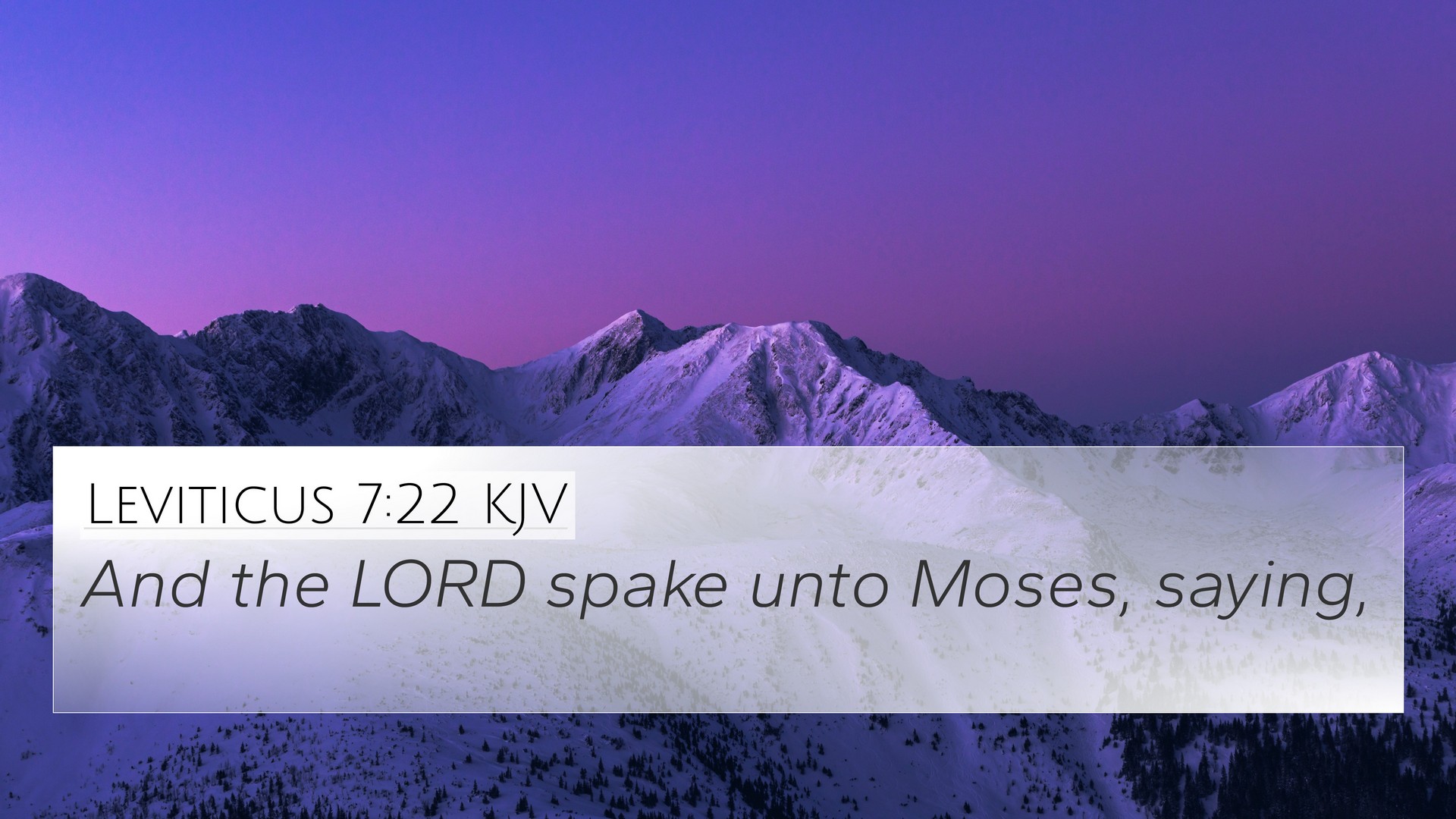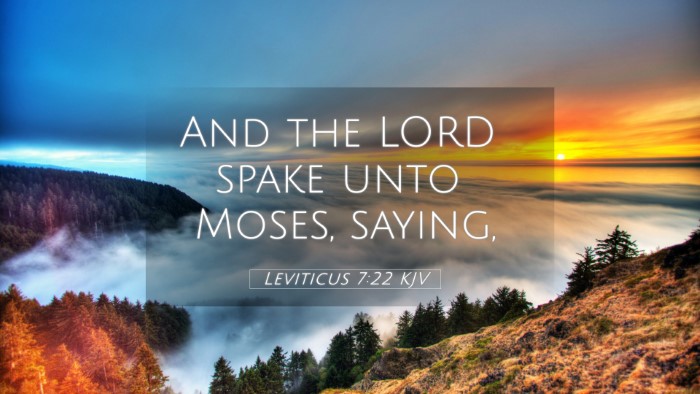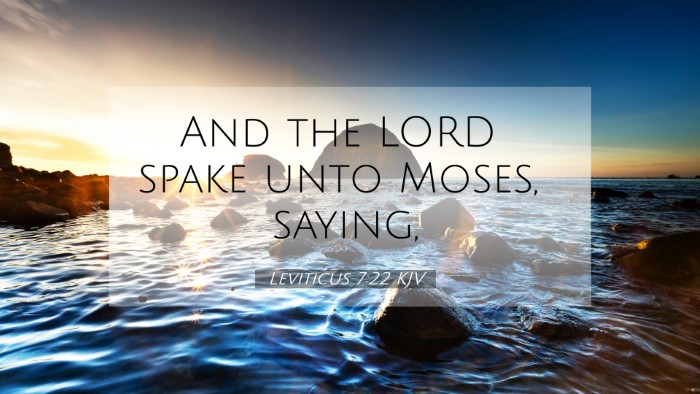Understanding Leviticus 7:22
Bible Verse: Leviticus 7:22
"And the LORD spoke to Moses, saying: Speak to the children of Israel, saying: You shall not eat any fat of ox or sheep or goat."
Summary of Biblical Context
Leviticus is a book of laws and regulations given to the Israelites, and in this verse, God establishes dietary restrictions regarding the consumption of fat from certain animals.
This command aims to ensure holiness and obedience among the people of Israel, emphasizing the importance of adhering to divine instructions.
Insight from Public Domain Commentaries
-
Matthew Henry:
Henry emphasizes that the prohibition of the fat relates to its sacredness. The fat of the sacrifices is a symbol of the best portions dedicated to God.
This reflects the principle of offering God our best and being mindful of what we consume, both physically and spiritually.
-
Albert Barnes:
Barnes notes that fat was often associated with richness and abundance. Therefore, God’s command to abstain from it serves as a teaching against indulgence.
It draws attention to the need for self-control and discipline in diet, which can extend to one's spiritual life.
-
Adam Clarke:
Clarke highlights that the prohibition isn’t merely dietary but has deeper ritual implications.
The fat, particularly from sacrifices, was central to atonement rituals, reminding believers of the seriousness of sin and the necessity of adhering to God’s laws.
Connections to Other Bible Verses
This verse can be cross-referenced with several other passages which provide a broader understanding of the themes of sacrifice, obedience, and dietary laws:
- Leviticus 3:16-17: Discusses the burning of fat as an offering to the Lord.
- Deuteronomy 14:3-4: Provides further dietary laws regarding clean and unclean animals.
- 1 Samuel 15:22: Highlights the importance of obedience over sacrifice.
- Romans 12:1: Reflects on offering our bodies as living sacrifices, holy and pleasing to God.
- Hebrews 9:22: Explains that without the shedding of blood, there is no forgiveness, tying into the sacrificial system mentioned in Leviticus.
- 1 Peter 2:9: Indicative of the calling of believers to be a chosen people, set apart and holy.
- James 4:7-8: Reminds us to submit to God and resist the devil; our lifestyle should reflect holiness.
Thematic Bible Verse Connections
The directive in Leviticus 7:22 resonates with broader biblical teachings regarding purity, holiness, and sacrifice:
- Purity and Holiness:
The call to avoid certain foods symbolizes a commitment to spiritual cleanliness and adherence to God's expectations.
- Obedience to God:
This verse highlights a recurring theme in Scripture: true faith manifests in obedience to God's commandments.
- Sacrificial System:
The prohibition reinforces the significance of the sacrificial offerings, where fat, as the best part, is devoted to God alone.
Conclusion
In exploring Leviticus 7:22 through the lens of various commentaries, we see a rich tapestry of meaning that connects dietary laws to spiritual truths. This verse not only addresses physical consumption but also serves as a reminder of our call to holiness and the importance of offering our best to God. By engaging in cross-referencing these Biblical texts, we understand deeper thematic connections and the continuity of God's message of holiness throughout Scripture.


